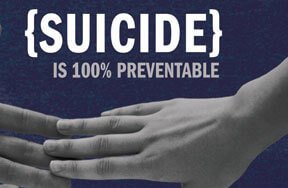Teen Dating Violence Month a national effort to raise awareness. Dating violence is more common than many people think. One in three teens in the United States will experience physical, sexual or emotional abuse by someone they are in a relationship with before they become adults. According to the Domestic Violence Awareness Project, approximately 1.5 million high school students in the United States experience physical abuse from a dating partner. One-quarter of parents don’t talk to their teens about domestic violence. In light of these alarming facts, every year during the month of February advocates join efforts to raise awareness about dating violence, and encourage communities to get involved.

How To Observe
Break the cycle. Start the conversation. Use #TeenDatingViolenceAwarenessMonth, #TeenDVMonth and #LoveIsRespect to share on social media. You can make a difference! Do your part by encouraging schools, parents, teens, and community-based organizations to prevent this kind of violence. If you are a parent, talk to your kids about the dangers of teen dating violence. Teach children that love is respect, and if someone tries to hurt them in any way, how to stand up for themselves and safely exit the situation they’re in. If you are a teacher or feel comfortable mentioning this to a teacher you know, encourage schools to hold classroom discussions talking about how to prevent dating violence. As a parent, make sure your children are mature enough to date and help prepare them to get themselves out of a dangerous situation.

History
Teen dating violence (TDV) is defined as a pattern of abuse or threat of abuse against teenaged dating partners, occurring in different forms, including verbal, emotional, physical, sexual and digital. TDV occurs across diverse groups and cultures. National Teen Dating Violence Awareness and Prevention Week was declared to be the first week in February in 2006. Congress declared the entire month of February to be National Teen Dating Violence Awareness and Prevention Month four years later in 2010.

Resources
Remember that you are not alone and that there are many organizations that provide services to young people who experience dating violence, as well as information to adults who are concerned about young people.
- National Dating Abuse Helpline - This hotline provides 24-hour national web-based and telephone resources to help teens experiencing dating abuse. Young people (as well as concerned friends, parents, teachers, clergy, law enforcement and service providers) anywhere in the country can call toll free, 1-866-331-9474, text “loveis” to 22522, or log on to the interactive website, loveisrespect.org, and receive immediate, confidential assistance.
- Break the Cycle is a national nonprofit organization that provides preventive dating and domestic violence education and outreach to teens and young adults.
- Love is Not Abuse Beginning in 2012, Break the Cycle is operating the Love is Not Abuse campaign and grassroots coalition of advocates. The campaign includes comprehensive resources for parents, a digital abuse curriculum and tips for engaging men and boys.
Share With Kidzworld
Have you ever experienced abuse in a relationship? Do you have tips for other readers on how to break the cycle? Comment below

































